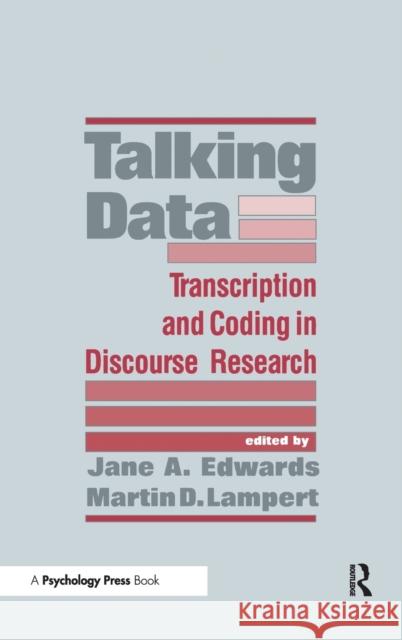Talking Data : Transcription and Coding in Discourse Research » książka
Talking Data : Transcription and Coding in Discourse Research
ISBN-13: 9780805803488 / Angielski / Twarda / 1993 / 336 str.
Talking Data : Transcription and Coding in Discourse Research
ISBN-13: 9780805803488 / Angielski / Twarda / 1993 / 336 str.
(netto: 676,35 VAT: 5%)
Najniższa cena z 30 dni: 654,86
ok. 16-18 dni roboczych.
Darmowa dostawa!
Presents the reader with a set of diverse, carefully developed and clearly specified systems of transcription and coding, arising from contrasting theoretical perspectives and presented as alternative choices, situated within the theoretical domain most natural to each.
This book presents the reader with a set of diverse, carefully developed and clearly specified systems of transcription and coding, arising from contrasting theoretical perspectives, and presented as alternative choices, situated within the theoretical domain most natural to each. The perspectives represented include first and second language acquisition, interethnic and crosscultural interaction, information structure, and the study of discourse influences on linguistic expression.
In the contributed chapters, the designers of these systems provide a distillation of collective experiences from the past quarter century, telling in their own words their perspectives on language processes, how these perspectives have shaped their choice of methodology in transcription and coding of natural language, and describing their systems in detail. Overview chapters by the editors then provide design principles and guidelines concerning issues pertinent to all systems, including such things as reliability, validity, ease of learning, computational tractability, and robustness against error. The final chapter is a compendium of existing computerized archives of language data and information sources together with details concerning data access and use.











